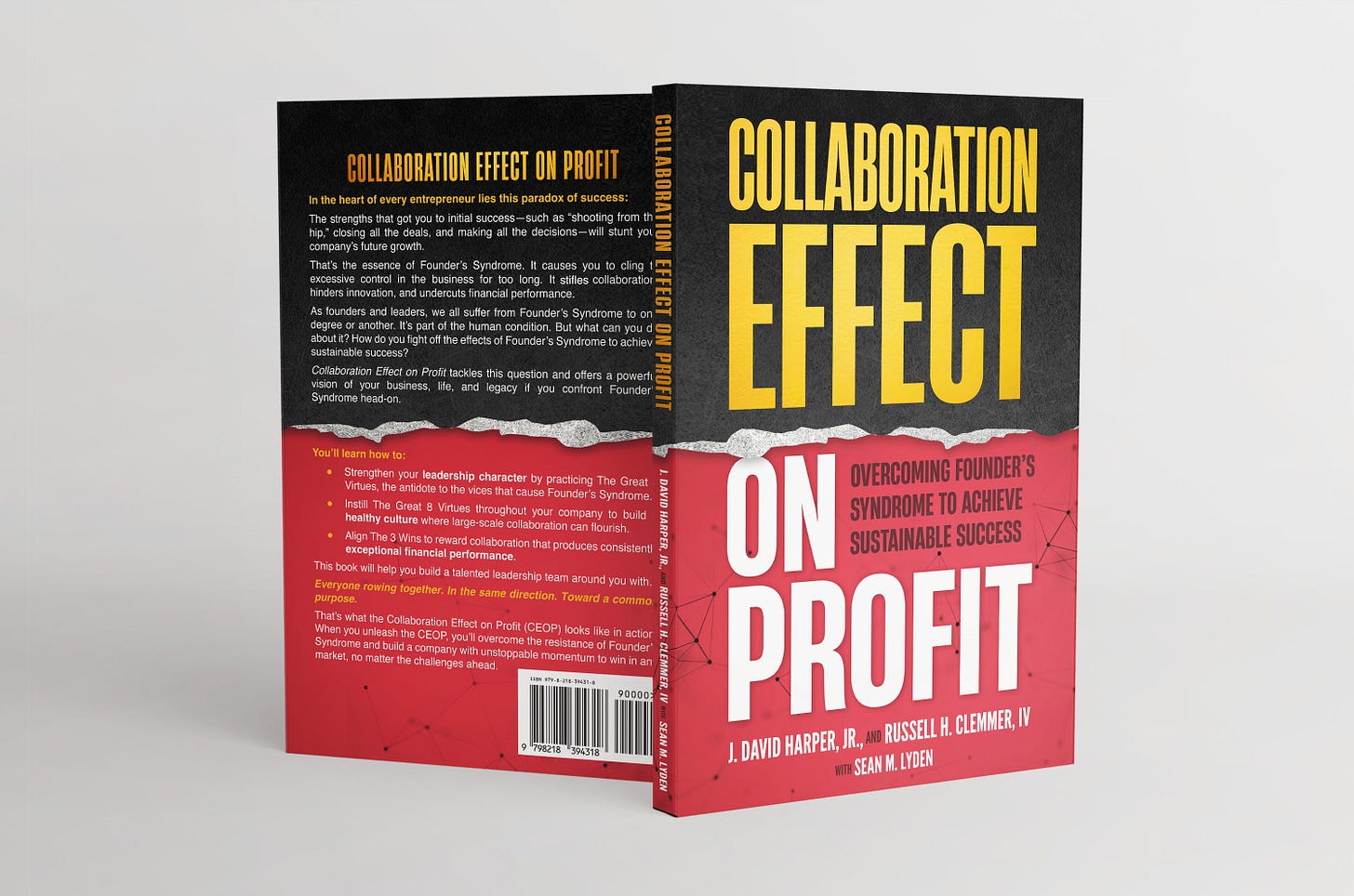Today, Cory Carlson joins us on the Systematic Selling Podcast.
Cory is an executive coach and keynote speaker.
He’s the author of two books:
Win at Home First: An Inspirational Guide to Work-Life Balance
Rise and Go: How to Get Back Up with Courage & Move Forward with Confidence.
Cory is also the host of the popular “Win at Home Podcast.”
I asked Cory to join us because one of the biggest barriers to our success as founders and sales leaders is when we have a chaotic personal and family life
When things unravel at home, they tend to spill into your business—and impact your ability to sell.
So, how can you more effectively manage the competing pressures for your attention?
What systems can you design in your life and work to achieve an optimal balance?
These are the types of questions Cory helps his executive clients work through—and what we’re going to be talking about today on Episode 19 of the Systematic Selling Podcast!
Here are 7 action items with reflection questions derived from my conversation with Cory on Episode 19:
1. Establish personal key performance indicators (KPIs).
Set measurable goals for your personal life, such as two date nights per month with your spouse or one-on-one time with each child monthly.
What areas of your personal life need more attention?
How can you quantify success in your relationships?
What specific, measurable goals could you set for family time?
How often should you review and adjust your personal KPIs?
What accountability measures can you put in place for these KPIs?
2. Create a ‘Personal Manifesto.’
Develop a document outlining your values, goals, and positive affirmations to reference during challenging times.
What core values define your approach to life and business?
What positive affirmations resonate most with you?
How can you make your manifesto easily accessible for regular review?
What long-term goals should be included in your manifesto?
How might your manifesto evolve as you grow and change?
3. Build a support network.
Form a group of peers who meet regularly to discuss both personal and professional challenges. Cory meets with his group every Thursday morning.
Who are the people you trust to discuss both personal and professional challenges?
What qualities do you look for in a support group member?
How can you contribute to and benefit from a peer support network?
What format (in-person, virtual, frequency) would work best for your support group meetings?
How can you ensure these meetings remain productive and supportive?
4. Practice open communication with your spouse.
Regularly discuss both successes and challenges in your work life with your partner, building trust and understanding before crises occur.
How comfortable are you discussing work challenges with your spouse?
What barriers prevent open communication about your work life at home?
How can you create regular opportunities for meaningful conversations with your spouse?
What specific aspects of your work do you think your spouse would want to understand better?
How can you show genuine interest in your spouse's perspective on your work-life balance?
5. Implement the ‘God's Got the Night Shift’ Principle.
Set boundaries on work hours, trusting that progress can happen even when you're not actively working.
What are your current work-hour boundaries?
How do you typically spend your time after work hours?
What tasks or worries keep you working beyond reasonable hours?
How can you build more trust in the process and let go of constant control?
What evening routines could help you transition from work mode to personal time?
6. Capture and revisit success stories.
Document unexpected wins and positive outcomes to review during difficult times, reinforcing belief in future success.
What unexpected wins have you experienced in your business recently?
How do you currently document and celebrate successes?
When was the last time you reflected on past achievements during a challenging period?
How can you make reviewing success stories a regular practice?
What format (journal, video, audio) would work best for capturing your success stories?
7. Focus on incremental improvements.
Choose one area for improvement and implement changes gradually, building on small successes over time.
What one area of your life or business needs immediate attention?
What small, actionable step could you take today towards improvement in this area?
How can you track progress on small improvements over time?
What potential obstacles might prevent you from making incremental changes?
How can you celebrate small wins to maintain motivation for continuous improvement?
Additional Resource:
Check out our new book, Collaboration Effect on Profit: Overcoming Founder’s Syndrome to Achieve Sustainable Success.
Until next time!
Sean












